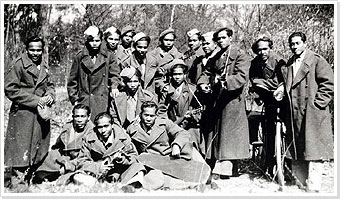> Historical background

Some 12,500 Moluccans arrived in the Netherlands in 1951. Their arrival was a temporary solution to the political problems in Indonesia that had developed after the transfer of sovereignty and the disbandment of the Dutch colonial army (KNIL).
As the situation was expected to be temporary, the Moluccans were housed in isolated camps. However, a short-term return proved impossible. From 1956 onwards, Dutch policy making was aimed at integration: The self-support rule was introduced and new wards were built for Moluccans.
The 1960s and 1970s were an age of radicalisation. The hijackings that took place caused a great deal of tension between the Moluccan community and Dutch society. In the 1980s, the focus shifted towards social issues like employment, welfare and education.
Over the past few decades, an increasing number of Moluccans have started visiting the Moluccas. This has given a new impulse to the experience of Moluccan traditions in the Netherlands, especially among third and fourth-generation youths.
Read more about:
Past history
KNIL (Dutch colonial army)
RMS (Republik Maluku Selatan)
Moving temporarily to The Netherlands
From care to self-support
From camps to wards
Radicalisation
Social and economic measures
Relation with the Moluccas
